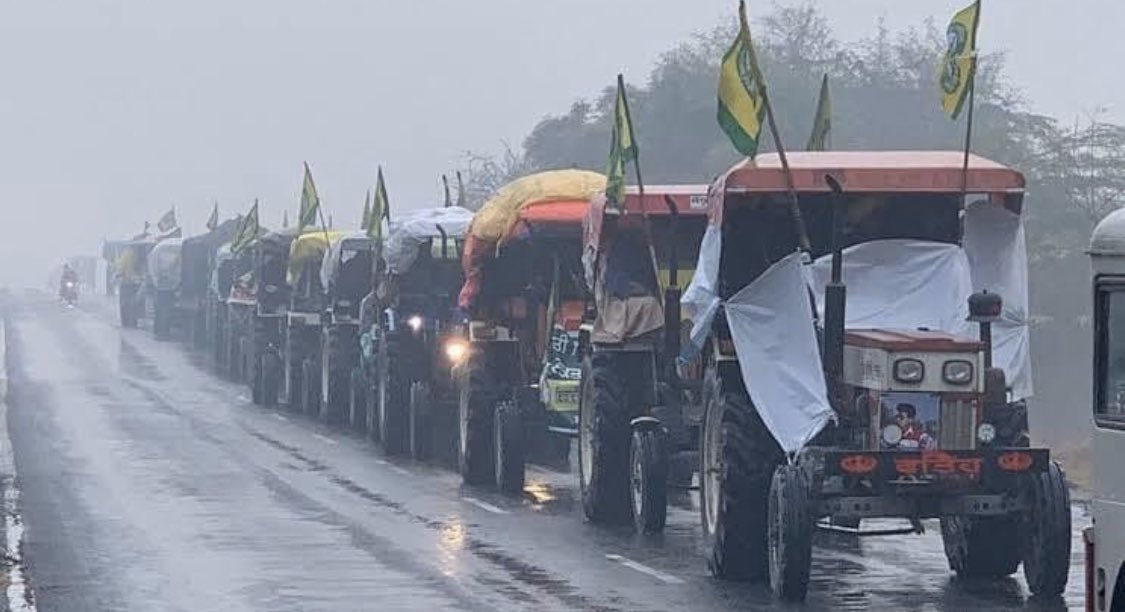
Today, Sikhs around the world are celebrating the birth anniversary of Guru Nanak. He's the founder of Sikhi, the world's fifth largest religion, with nearly 30 million followers around the globe.
Here's a bit on his life and teachings, and why we continue to honor him today.
Here's a bit on his life and teachings, and why we continue to honor him today.
Born in the humble village of Talwandi, Punjab, in 1469, young Nanak found himself dissatisfied with the inequities, hypocrisies and general unhappiness he observed all around him.
He ultimately decided to establish a new religious tradition, Sikhi (in English, Sikhism), a tradition that continues to flourish more than five centuries later.
Sikhs live all over the world and contribute to their communities in diverse ways.
Sikhs live all over the world and contribute to their communities in diverse ways.
His teachings have inspired a diversity of expressions over the years, from art and literature to humanitarian efforts.
In a way, the most easily noticeable aspect of his legacy is how Guru Nanak continues to inspire so many and how his teachings continue to resonate today.
In a way, the most easily noticeable aspect of his legacy is how Guru Nanak continues to inspire so many and how his teachings continue to resonate today.
Guru Nanak’s first teaching, and the first teaching to appear in Sikh scripture (Guru Granth Sahib), is the term ik oankar.
This term refers to the oneness of reality, a singular connective force that permeates every aspect of this world.
This term refers to the oneness of reality, a singular connective force that permeates every aspect of this world.

In a prayer that Sikhs have sung every evening for centuries, Guru Nanak wrote, “The same divine light pervades everyone and everything.”
Ik oankar is so central to Sikh teachings that many have said all of Sikh wisdom is constructed upon its foundation.
Ik oankar is so central to Sikh teachings that many have said all of Sikh wisdom is constructed upon its foundation.
We see this in the life of Guru Nanak, who rejected all social disparities and hierarchies (e.g., gender, caste, religion) and advocated for equal rights for all.
Seeking equality was a natural outcome of his worldview–any form of supremacy is a blot on our collective divinity.
Seeking equality was a natural outcome of his worldview–any form of supremacy is a blot on our collective divinity.
Guru Nanak taught that it’s not enough to intellectualize our ideas. We must live by the values we announce.
When we practice feeling a sense of oneness with the world around us, we can cultivate a feeling of connection. This feeling of connection is best described as love.
When we practice feeling a sense of oneness with the world around us, we can cultivate a feeling of connection. This feeling of connection is best described as love.
In the Sikh worldview, this is the ultimate goal of our lives — to find and experience this deep connection of love. It’s an all-consuming kind of love, one that brings joy and optimism into our everyday lives and one that becomes embedded in the cores of our beings.
This is what Guru Nanak meant when he wrote, “If you want to play the game of love, then approach me with your head in your hands.” This is not a soft, mushy love. It’s a powerful, resounding love, that is both sustained and sustaining.
The idea of service in the Sikh tradition ties directly to the ideas of oneness and love. When we truly see our shared divinity and feel love for the people around us, we will automatically be moved to serve them.
One of the most commonly circulated accounts from Guru Nanak’s life demonstrates his commitment to service and justice. When he was a boy, Guru Nanak’s father gave him money to go to town and find a good deal. Guru Nanak gave all his money to a group of impoverished devotees.
In explaining the decision to his father, he pointed out that his father asked him to find a good deal and asked, “What could have been more profitable than this?”
There are many examples from the life of Guru Nanak that exemplify his commitment to seva. He spoke out against the Emperor Babur, who massacred civilians as he sought to solidify power in South Asia. Some early sources record that Babur imprisoned Guru Nanak for his resistance.
Guru Nanak established langar, a free meal served to anyone and everyone with only one real condition – all must sit together on the floor as a mark of equality. He established community centers (dharamsalas) and he even established a city, Kartarpur, that thrives to this day.
What Sikhs take from the life of Guru Nanak is a model for how to live by one’s values and ideals. He is seen as a paragon in this regard, someone who actually practiced what he preached.
It is memories and teachings like these that Sikhs will be reflecting on over the next month. The rest of us might do well to take this opportunity to reflect on these ideas as well.
• • •
Missing some Tweet in this thread? You can try to
force a refresh







